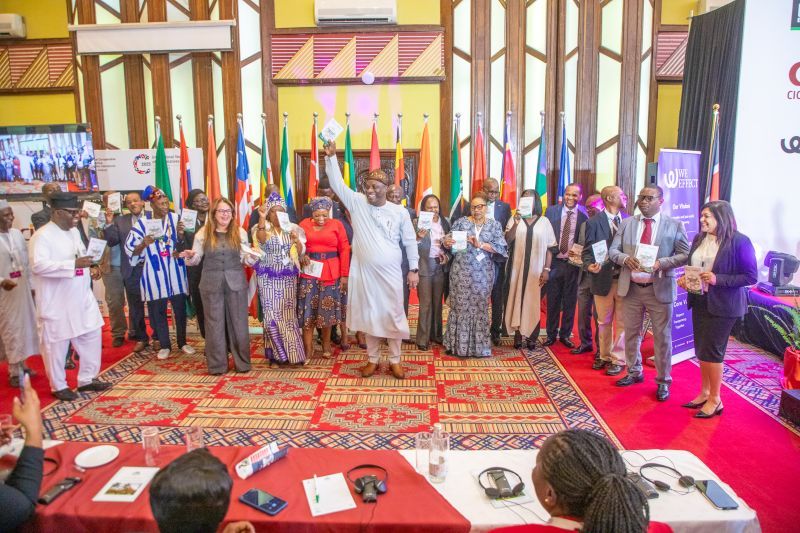Pan -African Parliament Launches Model Law on Cooperatives for Africa at the 14th Africa Ministerial Cooperative Conference

Nairobi, Kenya — October 6–9, 2025. The Pan-African Parliament (PAP) has officially launched the Model Law on Cooperatives for Africa during the 14th Africa Ministerial Cooperative Conference (AMCCO) held in Nairobi, Kenya. The event, organized by the International Cooperative Alliance–Africa (ICA-Africa) in collaboration with the Ministry of Co-operatives and Micro, Small, and Medium Enterprises (MSMEs) Development of Kenya, marked a major step forward in strengthening the policy and legal environment for cooperatives across the continent.
A Major Step for Cooperative Governance
The launch of the Model Law represents a significant milestone in promoting cooperative governance across Africa. It provides a harmonized framework to guide countries in developing or reforming national cooperative legislation, ensuring that cooperatives operate in a more enabling, inclusive, and consistent environment.
ICA-Africa's Involvement
The International Cooperative Alliance–Africa has been instrumental in initiating and coordinating the development of the Model Law. Recognizing the need for a continental framework, ICA-Africa proposed the formulation of a unified legal framework for cooperatives, which was subsequently approved by the PAP’s Committee on Monetary and Financial Affairs in November 2022.
To ensure inclusivity and regional representation, ICA-Africa facilitated a series of consultations with cooperative stakeholders across the five regions of Africa. In August 2023, representatives from the Pan-African Parliament, civil society, and the cooperative movement convened in Nairobi to review and refine the draft Model Law, identifying key gaps and proposing improvements to make it more responsive to the realities faced by African cooperatives.
Through this collaborative approach, ICA-Africa demonstrated its commitment to strengthening the policy and legislative landscape for cooperatives, ensuring that the final Model Law aligns with Africa’s development aspirations and global best practices.
Why It Matters for Africa’s Cooperative Movement
Across the continent, cooperatives play a vital role in job creation, food security, financial inclusion, and community empowerment. With more than 300,000 cooperatives benefiting over 250 million people, they are central to advancing the UN Sustainable Development Goals (SDGs), the African Union’s Agenda 2063, and national strategies such as Kenya’s Bottom-Up Economic Transformation Agenda (BETA).
The Model Law on Cooperatives will help strengthen governance, attract investment, and enhance the visibility of the cooperative model as a sustainable business alternative. It will also guide African governments in designing legislation that enables cooperatives to scale their impact, especially in rural and informal sectors where they are key to inclusive economic growth.
AMCCO: A Platform for Policy Dialogue and Action
Since its inception in 1984, the Africa Ministerial Cooperative Conference (AMCCO) has served as a vital platform for ministers, policymakers, and cooperative leaders to align strategies for advancing the cooperative agenda. Held every three years, AMCCO facilitates dialogue, policy coordination, and partnership-building across the continent.
The 14th edition, hosted by the Ministry of Co-operatives and Micro, Small, and Medium Enterprises (MSMEs) Development of Kenya and ICA-Africa, highlighted the importance of translating policy commitments into actionable outcomes—an objective reflected in the successful launch of the Model Law.
